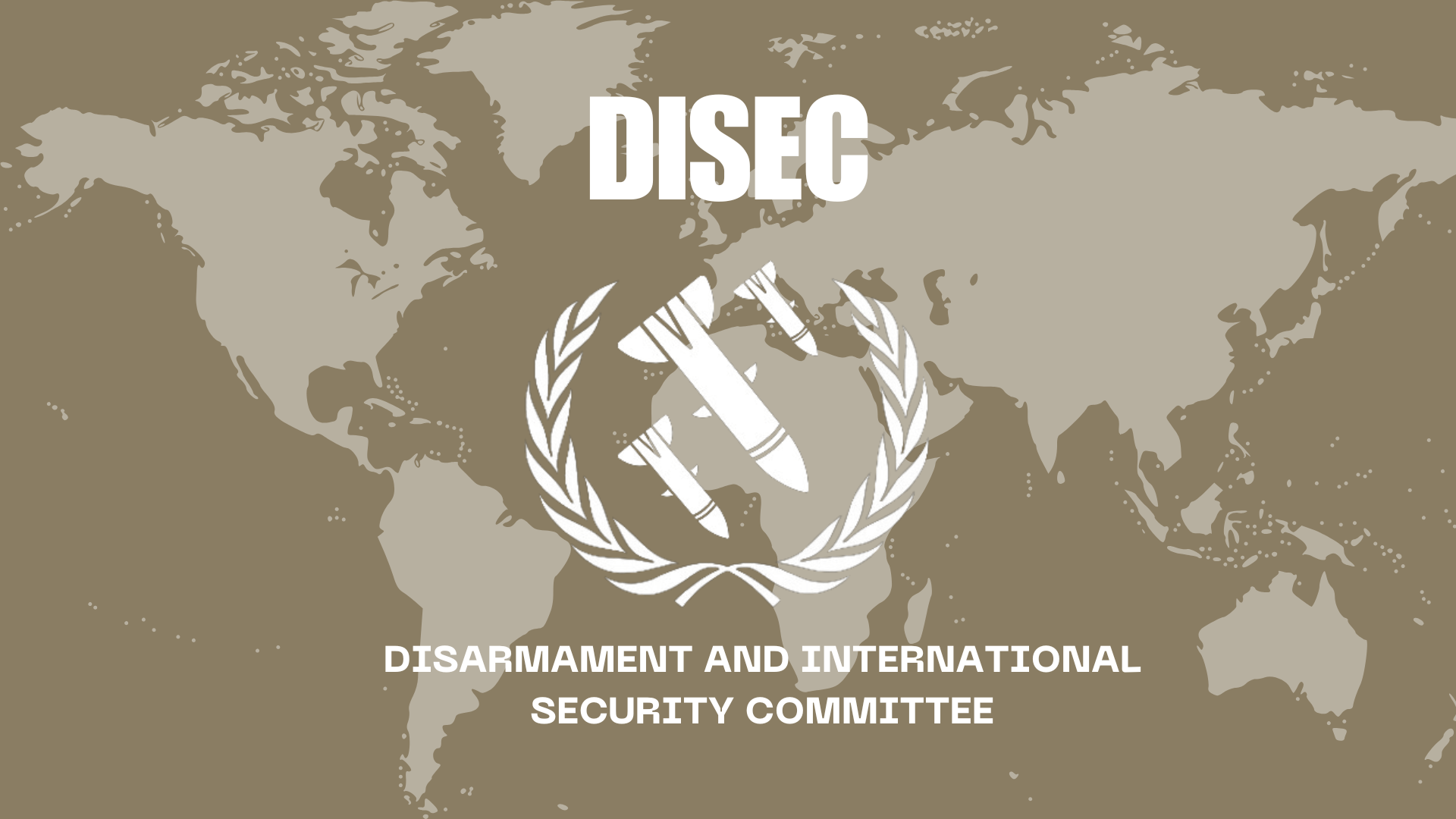
About The DISEC
The Disarmament and International Security Committee (DISEC), officially known as the First Committee of the United Nations General Assembly, is responsible for addressing issues related to international peace and security. As part of the six main committees of the General Assembly, DISEC plays a critical role in discussing matters of global disarmament, regulation of armaments, and threats to peace that may not fall under the immediate jurisdiction of the Security Council. While its resolutions are not legally binding, they carry significant moral and diplomatic weight, shaping international norms and treaties.
DISEC primarily focuses on reducing the risks posed by weapons of mass destruction—nuclear, biological, and chemical weapons—as well as conventional arms and emerging threats such as cyber warfare and the militarization of outer space. The committee works to develop consensus-based resolutions that promote disarmament, enhance security cooperation, and reduce the threat of armed conflict across the globe. These discussions often lead to the creation or refinement of global treaties such as the Nuclear Non-Proliferation Treaty (NPT), the Arms Trade Treaty (ATT), and the Chemical Weapons Convention (CWC).
The committee also examines regional conflicts, terrorism, and the global arms trade. It seeks to limit the flow of weapons into conflict zones and supports initiatives that promote disarmament in post-conflict regions. DISEC provides a forum for all 193 member states of the UN to propose and debate solutions on security matters, making it a vital platform for diplomacy and international collaboration.
In recent years, DISEC has expanded its scope to address modern security challenges, including cybersecurity threats, drone warfare, and artificial intelligence in military applications. These emerging issues demand new frameworks of international law and greater cooperation between states. DISEC facilitates early discussions that can lead to future treaties or UN mandates aimed at regulating the use of such technologies in warfare.
Despite its limitations in enforcement, DISEC's influence is substantial. Its debates and resolutions shape global opinion, guide national policies, and often lay the groundwork for legally binding agreements adopted through other UN bodies. The committee also encourages transparency, confidence-building measures, and responsible behavior among nations, contributing to a more stable international environment.
In conclusion, DISEC is a cornerstone of the United Nations' efforts to promote peace and disarmament. Through open dialogue, inclusive participation, and the formulation of international norms, the committee works to address both traditional and emerging security threats. While its power lies in persuasion rather than enforcement, its work remains essential in guiding global efforts toward a safer and more peaceful world.The Agenda
The agenda for this committee is "Revisiting the Nuclear Non-Proliferation Architecture to Combat Emerging Threats". For more information about the agenda, check out the background guide featured below.

